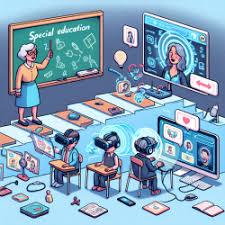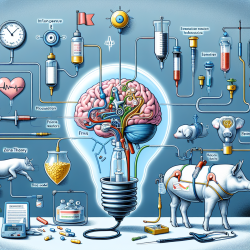Empowering Change: Transforming Microaggression Experiences into Opportunities for Growth
In the realm of education, particularly in medical schools, fostering an inclusive and supportive environment is crucial for the well-being and success of students. A recent study titled "Characterizing Asian American Medical Students’ Experiences with Microaggression and the Impact on Their Well-being" sheds light on the pervasive issue of microaggressions and their profound impact on Asian American medical students. This blog aims to translate the findings of this study into actionable insights for practitioners, educators, and institutions to create a more equitable learning environment.
Understanding the Impact of Microaggressions
Microaggressions are subtle, often unintentional, discriminatory remarks or behaviors that communicate hostile or derogatory messages to individuals based on their race, gender, or other marginalized identities. The study, conducted by Zhang et al., highlights that nearly 70% of Asian American medical students reported experiencing microaggressions during their training. These experiences, primarily perpetrated by patients, fellow students, and professors, lead to feelings of frustration, burnout, and negatively impact mental health.
Key Findings and Their Implications
- Prevalence and Sources: The study found that microaggressions were most commonly experienced from patients (70.9%), fellow medical students (59.2%), and professors (42.3%). This indicates a need for comprehensive training and awareness programs across all levels of medical education.
- Common Themes: The themes of being perceived as a perpetual foreigner, the assumption of timidness, and the ascription of the model minority myth were prevalent. These stereotypes undermine students' confidence and contribute to an unwelcoming environment.
- Reporting and Response: A significant barrier to addressing microaggressions is the lack of reporting due to fear of retaliation and uncertainty about the appropriateness of responses. Only 15.4% of students reported incidents, highlighting the need for improved reporting systems and support structures.
Recommendations for Practitioners and Educators
To address these challenges, practitioners and educators can implement the following strategies:
- Enhance Reporting Systems: Develop anonymous and accessible reporting mechanisms that encourage students to report incidents without fear of repercussions.
- Increase Awareness and Training: Conduct regular training sessions for faculty, staff, and students to recognize and address microaggressions effectively. Encourage open dialogues and discussions on diversity and inclusion.
- Promote Diverse Leadership: Advocate for increased representation of Asian Americans and other minority groups in leadership positions within educational institutions to provide mentorship and support for students.
- Integrate Cultural Competency into Curriculum: Incorporate lessons on cultural competency and the impact of microaggressions into the medical curriculum to foster empathy and understanding among future healthcare professionals.
Encouraging Further Research and Advocacy
While the study provides valuable insights, there is a need for continued research to explore the intersectionality of race and gender in experiences of microaggressions. Practitioners are encouraged to engage in further research to develop targeted interventions that address the unique challenges faced by Asian American medical students.
By implementing these recommendations, educators and practitioners can contribute to a more inclusive and supportive learning environment that empowers all students to thrive. For those interested in delving deeper into this topic, I highly recommend reading the original research paper by Zhang et al. To read the original research paper, please follow this link: Characterizing Asian American medical students’ experiences with microaggression and the impact on their well-being.










